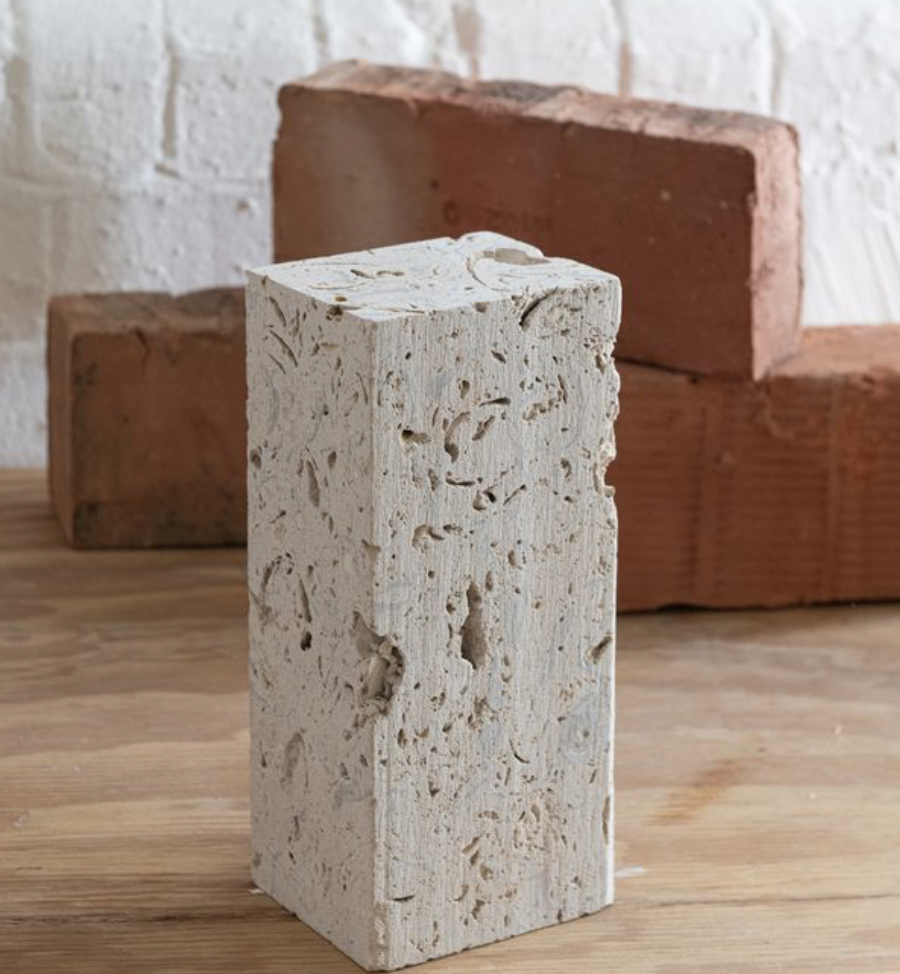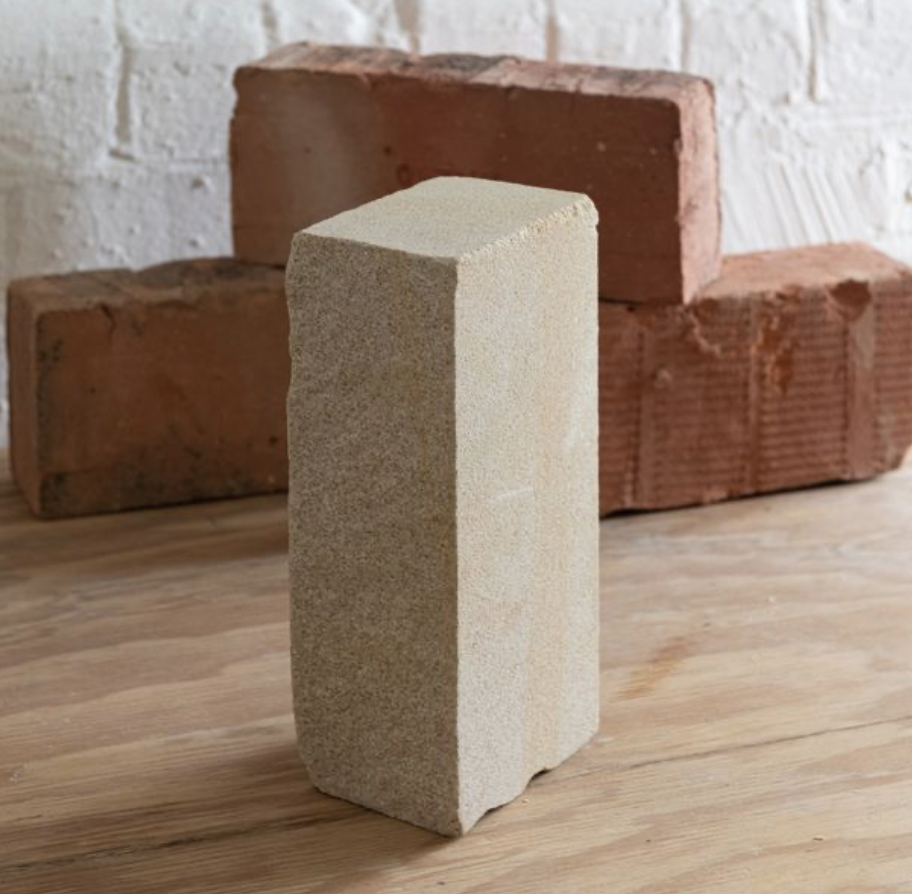Championing an age-old, low-carbon material in a new form
British stone suppliers Albion Stone and Hutton Stone have commissioned architecture practice Artefact to design a 3m tall stone brick installation called Brick from a Stone which will appear at this year’s Clerkenwell Design Week (21-23 May). The installation will showcase stone bricks which both companies are launching this year. These bricks have remarkable environmental credentials, with carbon intensity reductions of about 75% when compared to clay-fired bricks – they only have about a quarter of the carbon footprint of traditional bricks.


Heritage Portland Stone Brick from Albion Stone Darney Heritage Natural Brick from Hutton Stone

PHOTO CREDITS FOR IVAN JONES
Both companies have invested in state-of-the-art machinery and technology to turn ‘unloved stone’ (blocks and slabs that do not readily conform to sanitized ranges that have become the norm for stone today) into a sustainable building material. These bricks meet the growing appetite for more environmentally friendly buildings and the aesthetic specifications of planners across the UK who often prefer new buildings to be constructed or clad with bricks to suit the local vernacular.
Stone is increasingly recognised as a stronger, more durable, more recyclable, and lower-carbon alternative to the steel and concrete that has become synonymous with the built environment in the 20th and 21st centuries. The manufacture and transportation of steel and concrete involve enormous amounts of energy which largely comes from fossil fuels. Stone starts as zero carbon as it doesn’t need to be manufactured, although energy is needed to extract it from the ground, cut it into blocks and carve it if needed. The final product has a low factor of embodied carbon. When local stone is used for local construction projects, the carbon footprint associated with transportation is negligible. As we move towards electric machinery and transportation powered by renewable energy, the embodied carbon of natural stone will continue to reduce.
Brick from a Stone
Brick from a Stone will be installed between two iconic red London telephone boxes on Clerkenwell Green from 21-23 May. The installation will consist of a colonnade of six columns constructed from stone bricks in two rows with a roof to provide shelter.
The plinths that support the three slender columns to the rear will reflect the production process from stone boulders at the base, to slabs, strips, blocks and finally bricks.

The three more substantial columns at the front looking out over Clerkenwell Green will showcase the beauty and finishes of the bricks.
Designs are being developed for a brick table or bench beside the colonnade to encourage dwell time and there are plans to incorporate a dog water bowl into one of the plinths to reference the historic water trough for horses next to the installation on Clerkenwell Green.
“Our installation Brick from a Stone celebrates the variety of natural stone that lies in abundance beneath our feet, showcasing stone brick, a beautiful ‘new’ product that will help to decarbonise our buildings and provide an alternative to clay-fired brickwork. Our piece hints at the potential to create a new low-carbon vernacular for masonry buildings in the UK that marries the enduring qualities of natural stone with the hand-made qualities of brick,” said Daniel Marmot, Director of Artefact.
“Situated in Clerkenwell Green, the installation picks up on the history of the site, referencing the nearby horse trough with a drinking bowl for local dog walkers, a roof for shelter, benches and a table to place drinks from the pub next door. While the front columns are smooth and finished, the rear columns emerge from a rough-edged boulder, celebrating the production process,” added fellow director Benedetta Rogers.
Building, Design & Construction Magazine | The Choice of Industry Professionals





